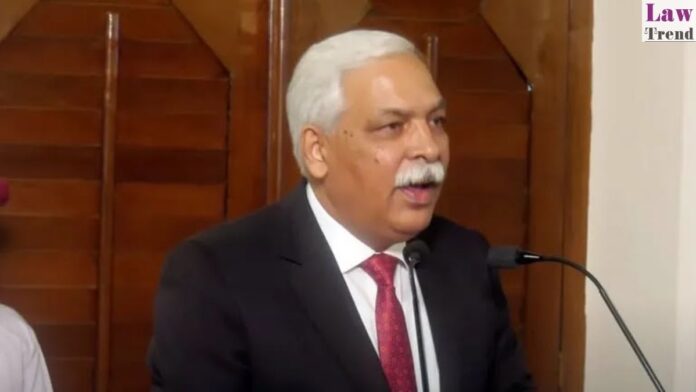Delhi High Court Chief Justice D K Upadhyaya emphasized the pivotal role of the judiciary in advancing modern constitutionalism in India, marking significant developments over the past 75 years. Speaking at the 29th Justice Sunanda Bhandare Memorial Lecture, Justice Upadhyaya highlighted how constitutional courts have addressed gaps not explicitly covered by the Constitution, thereby shaping the framework that governs contemporary India.
The event, organized by the Justice Sunanda Bhandare Foundation, featured discussions on “India’s Modern Constitutionalism” led by senior advocate Indira Jaising. During her address, Jaising critiqued a recent remark by Vice President Jagdeep Dhankhar regarding the “original Constitution,” which he suggested included illustrations of Ram. She clarified that the original Constitution, adopted in 1950, did not contain these illustrations, which were added in 1954, and criticized the Vice President’s statement for potentially spreading misinformation.
Justice Upadhyaya also pointed out that as soon as the Constitution was adopted, citizens began to use the courts to address significant issues, thereby actively participating in the evolution of constitutional norms. He mentioned that social movements and citizen mobilization have played crucial roles in enriching the Constitution’s core values.
Detailing the rights derived under Article 21 of the Constitution, Justice Upadhyaya listed the rights to live with dignity, livelihood, fair trial, food and shelter, education, and protection against sexual harassment. He reiterated the courts’ function in interpreting constitutional silences and traditions, thus maintaining a balance between traditional values and modern demands in constitutionalism.
The Chief Justice also honored the memory of Justice Sunanda Bhandare, referring to her as a “true pioneer” in advocating for gender equality and women’s empowerment through legal reforms. He praised her lifelong dedication to using law as an instrument for societal change, reinforcing the theme of the lecture and the enduring impact of judicial contributions to India’s constitutional democracy.



